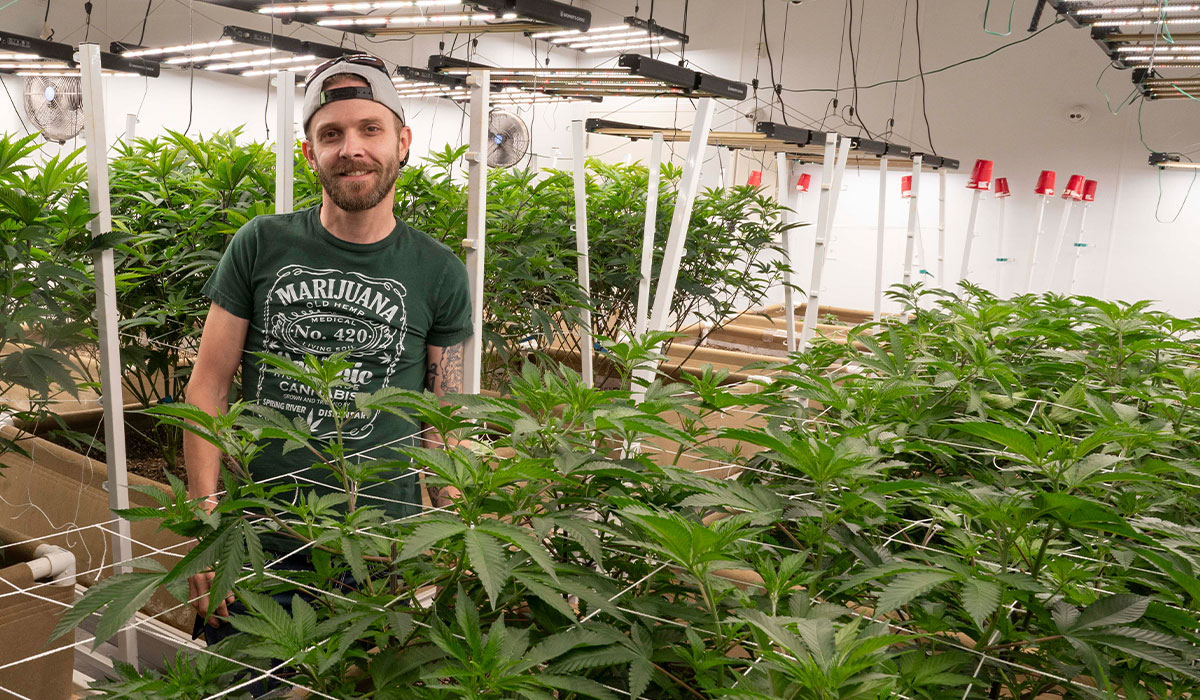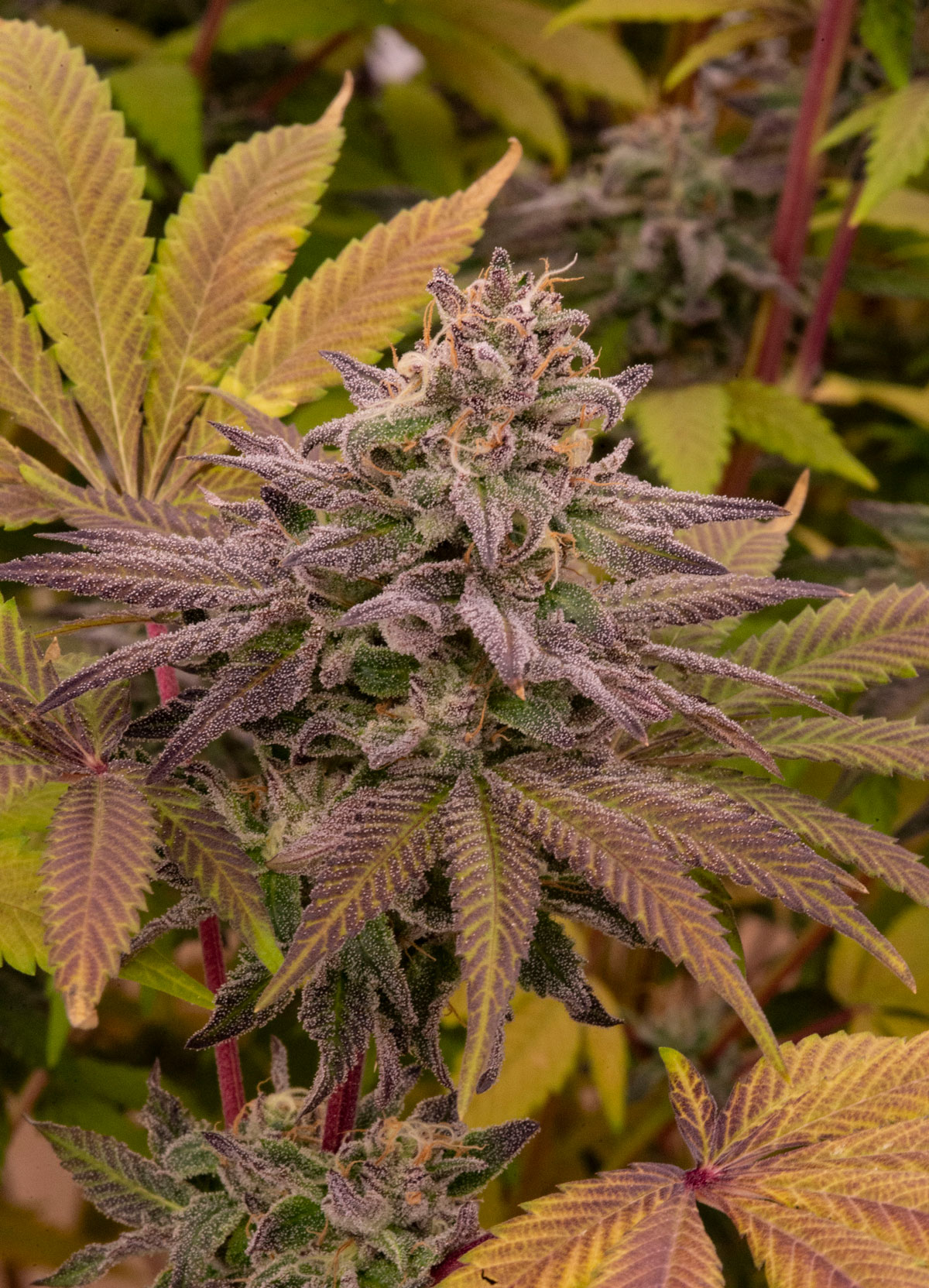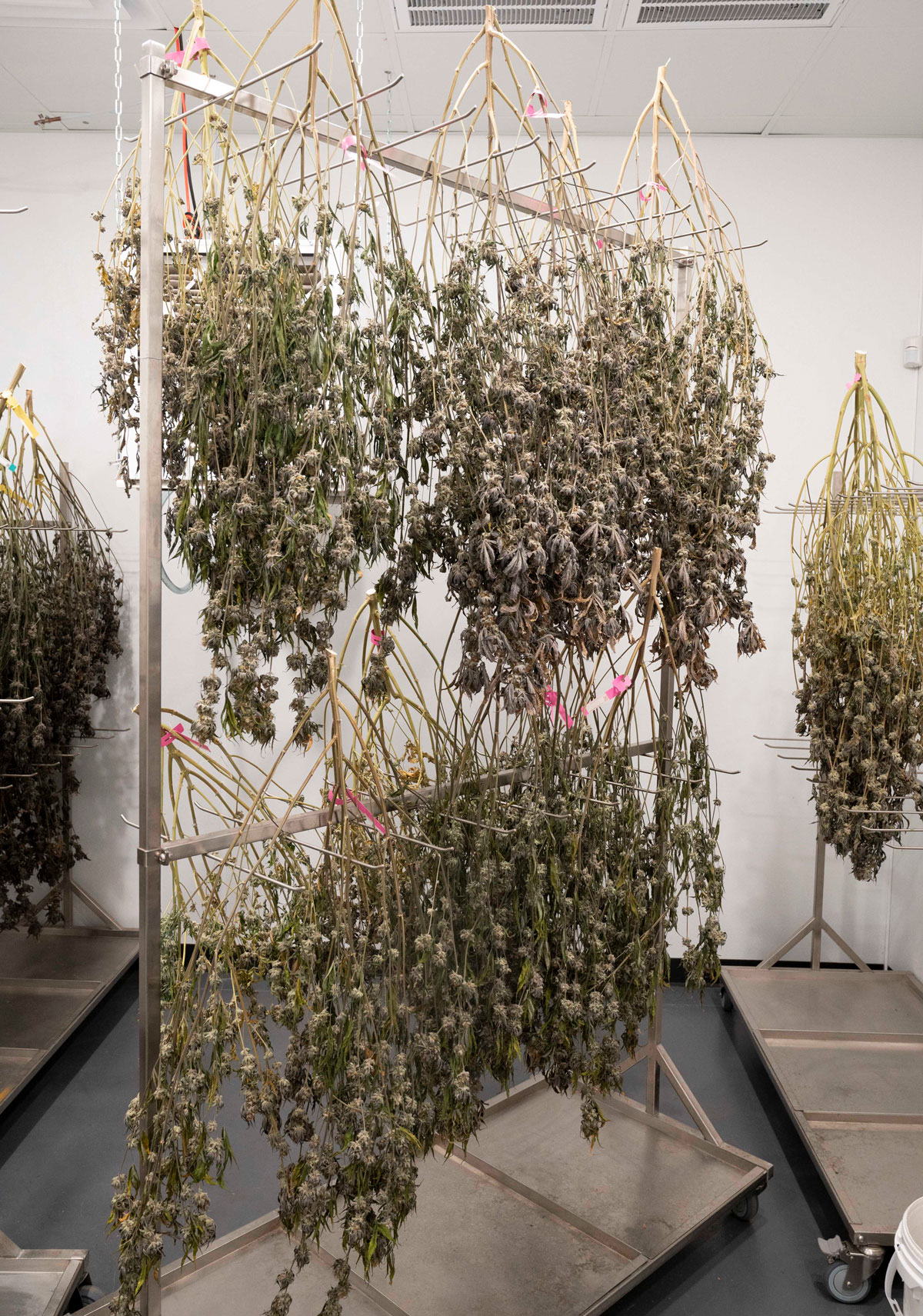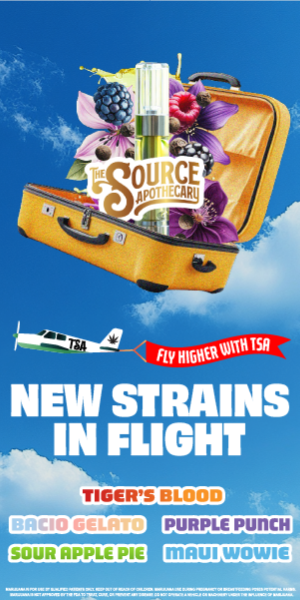THE HARDY GROW
Spring River Dispensary Gets Dirty.
By Matt Mcnair
Photography by Brian Chilson

Located about 2 miles north of downtown Hardy, Spring River Dispensary is one of the more far-flung of Arkansas’s medical cannabis outposts, but Spring River head cultivator JD Tucker is adamant the cannabis he and his team produce is worth the drive. And while a person familiar with Hardy and its environs might expect to hear a pitch in which the Spring River figures heavily — it’s a standout stream in a state chock-full of them, and the dispensary’s namesake to boot — JD Tucker will talk about dirt. A lot.
But not just any dirt. Tucker is a committed proponent of “living soil,” an organic-farming term referring to a confined batch of soil that mimics the processes at play in the natural world, with vegetative matter, nematodes, beneficial insects and subsurface fungi existing in symbiosis to form a self-contained, self-sustaining ecosystem.
Self-sustaining in this case is not just another way to say “sustainable,” but a literal description. Much like the seasoning on grandma’s cast iron skillet, the growing medium in Tucker’s beds stays the same. The soil requires only minimum inputs, such as organic fertilizer, and is never thrown out.
“My soil is regenerative,” Tucker says. “It doesn’t get replaced. I’ve been growing in the same soil for two-and-a-half years.”

While the soil remains the same, the strains of medical cannabis Tucker and his team produce vary quite a bit. Like all other cultivators operating under an Arkansas dispensary license, Tucker is disallowed from having more than 50 mature, flowering plants at any given time. While Tucker strives for a good variety of product — he generally keeps 10 to 12 strains in flower at any given time (out of 20 to 30 strains in various stages of development) — dividing 50 plants by a dozen strains equals another good reason for heading to Hardy: a limited window of availability for your favorite strain.
“When it’s gone,” Tucker says, “it’s gone.”
Which is not to say it’s gone forever, especially if a strain proves popular or produces a particularly interesting cannabinoid profile, such as a recent plant from a strain called Golden Pupil that contained 1.72% THCva, a minor cannabinoid fascinating to many cultivators for its unusual, almost counterintuitive properties. (THCva acts as an appetite suppressant, producing an effect sometimes referred to as the “anti-munchies.”) That’s more than 10 times the amount of THCva Tucker expects from any plant, prompting him to preserve the genetics of that specimen for future runs.
“There’s more on the way,” Tucker says of this Golden Pupil strain.
Since the cap limiting how much mature flower can be grown on-site will affect the amount and variety of site-grown product at any given time, the dispensary side of Spring River supplements its own products with a wide array of goods made with cannabis sourced from the “Big Eight,” an industry colloquialism for the eight grow operations in the state licensed to produce cannabis at scale.
According to Felice Tiffin, the general manager of Spring River Dispensary, no patient should be concerned about the selection of wares in stock when they make the trip to Spring River Dispensary.
“We have one of the largest inventories of any dispensary in the state,” she says of SRD, noting that along with a wide array of flower, vaporizer cartridges, extracts and edibles, the dispensary carries any and all accessories a patient will find necessary for consuming the cannabis products purchased at SRD. There is also plenty of branded gear just for fun, such as hats, blankets and — apropos for a dispensary named after a river — koozies.


The newest bit of décor in the Spring River showroom is hardware, as Tucker accepted four trophies on behalf of SRD at Cannabis Times’ Big Bud Classic, winning awards for Best CO²/Raw Vape (“Section A”), Best Concentrate (“O-Dawg”), Best RSO Concentrate (“Spring River Mud”) and Best Hybrid Flower (“Terpgasm”). These are the first wins for Tucker and SRD, and while Tucker is understandably proud of his achievement he is quick to praise Dark Horse Cannabis (which produces SRD’s processed offerings) and his “small but mighty” crew, comprised of trimmer John Mosher and cultivation assistants Terry Guthrie and Jordan Cooper.
“I can’t do what I do without them,” he says.
While Tucker expresses appreciation for the recognition the Big Bud Classic trophies represent, he insists that awards won’t change his approach to the work of producing medical cannabis, including his devotion to a clean and chemical-free growing process.
Averse to self-aggrandizement, Tucker will allow himself one boast regarding the cannabis coming out of his operation at Spring River Dispensary, one that speaks to a commitment to organic-farming principles and complete transparency regarding the process and methods employed in his grow operation.
“We have the cleanest medicine in the state,” he says, and is happy to produce receipts, offering not only the state-mandated COA (Certificate of Analysis) affirming the quality and safety of his cannabis to anyone who requests it but the entire report that supports and contextualizes the COA.
Tucker also voluntarily pays for mold and mildew testing — not required by Arkansas law — for each yield he produces, noting that, after all, “we’re in the South.”
A patient himself who uses medical cannabis to manage a chronic ailment, Tucker has a vested interest in the growth and improvement of an industry he and many of his peers see as a calling. That’s a recipe for satisfaction, and if Tucker has any complaint about his station in life it’s not that he wants to do anything else, but rather would like to do more of the same.
“I wish I could provide more Arkansans with quality medicine,” he says. “I just want to help people.”




